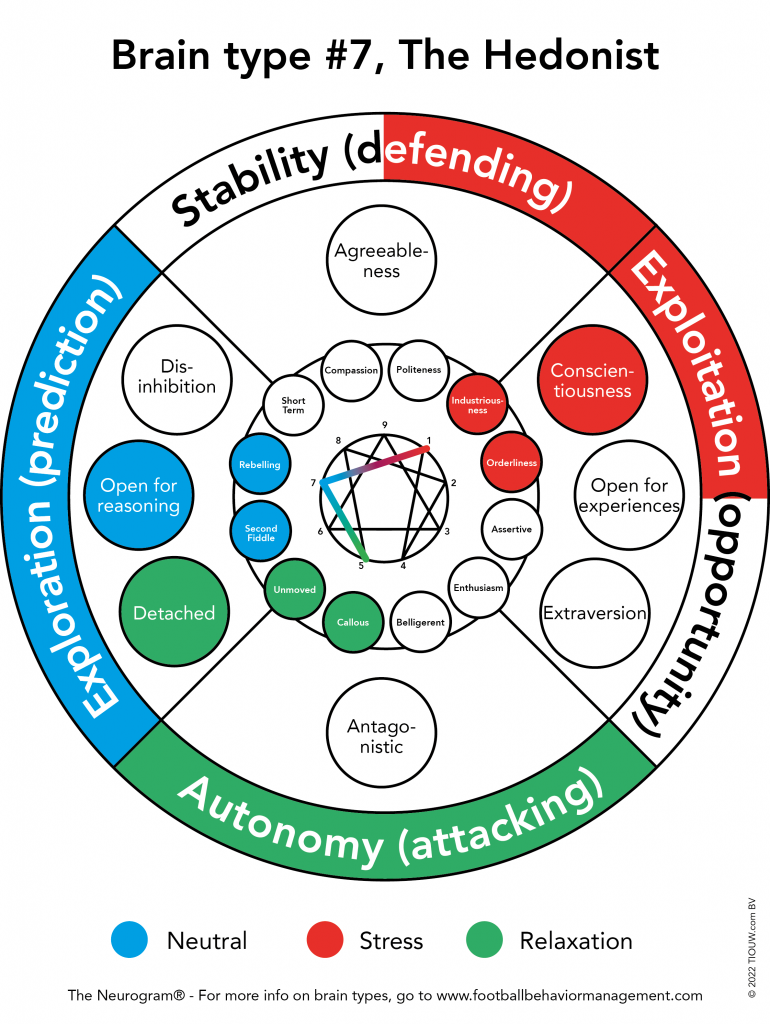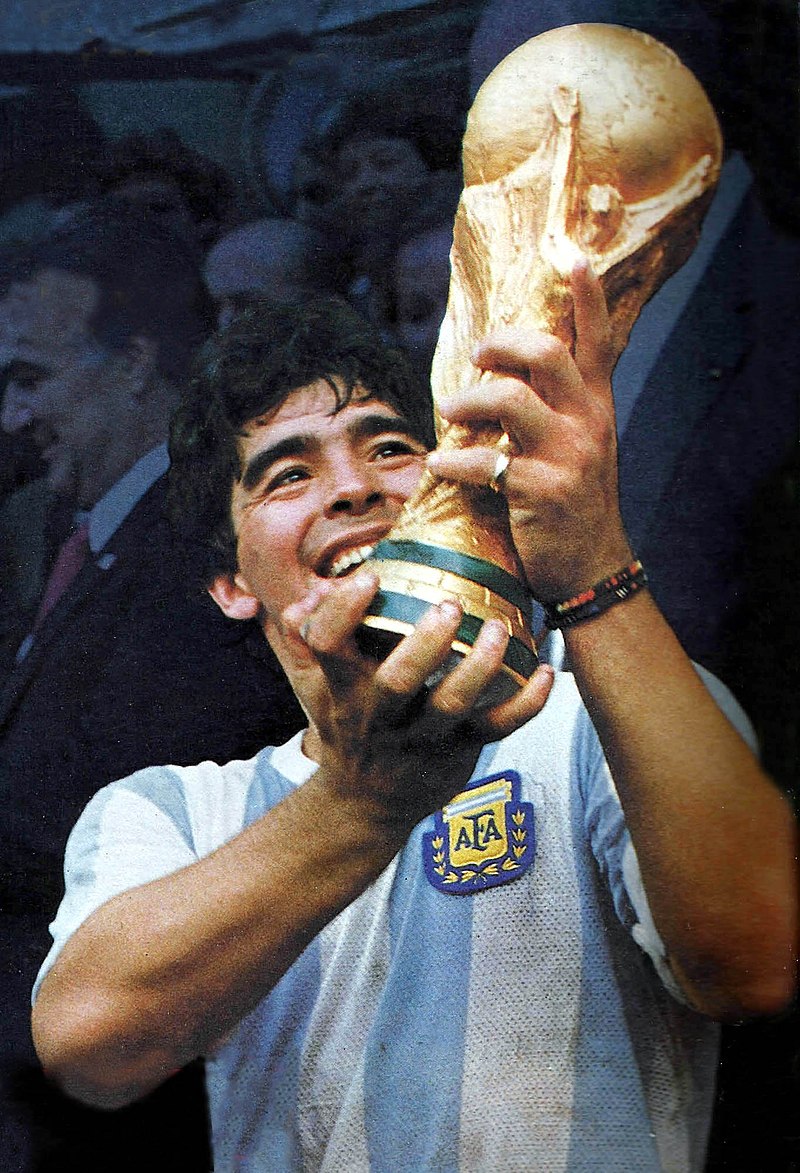
Exploration
In the context of football, “exploration” could refer to a player’s ability to exploit different areas of the pitch, try new techniques, take risks, and innovate in gameplay. This ability often comes with a high degree of creativity, technical skill, and a deep understanding of the game.
Diego Maradona, one of the greatest footballers of all time, indeed demonstrated a high degree of exploration during his career. His style was characterized by an extraordinary ability to dribble and navigate through tight spaces, and he was known for trying audacious moves that others wouldn’t. Here are a few examples that could illustrate why Maradona would score high on “Exploration”:
- Creativity and Innovation: Maradona was known for his ability to think outside the box and execute unexpected plays. His style was unpredictable and inventive, making it difficult for opponents to anticipate his moves.
- Versatility: Maradona was not restricted to one position or role. He was primarily an attacking midfielder, but his skill set allowed him to play effectively in several different positions and adapt to different game situations.
- Risk-Taking: Maradona was not afraid to take on multiple defenders or attempt difficult plays. His ‘Hand of God’ goal in the 1986 World Cup is a controversial example of his audacity.
- Exploiting Spaces: Maradona’s dribbling skill and vision allowed him to exploit spaces in the opposition defense that other players wouldn’t even attempt to navigate. His second goal against England in the 1986 World Cup, often called the ‘Goal of the Century,’ is a prime example of this, where he dribbled past five English players to score.
- Technical Skill: Maradona’s extraordinary technical skills, including his dribbling, ball control, and shooting ability, allowed him to try and succeed in plays that would be considered too risky or difficult for most other players.
Open for Reasoning
- Adaptability: Throughout his career, Maradona demonstrated a great ability to adapt to different teams, styles of play, and positions on the field. This suggests that he was open to new strategies and tactics, and could adjust his thinking based on the situation at hand.
- Problem-Solving: Maradona’s style of play often involved outwitting his opponents and finding creative solutions to challenges on the pitch. This indicates a high degree of logical thinking and problem-solving ability.
- Learning from Experience: Despite facing numerous personal and professional challenges throughout his career, Maradona continued to excel in football and learn from his experiences. This suggests a degree of openness to feedback and ability to change his approach based on evidence.
Submissive
- Team Player: Maradona was often praised for his ability to work with his teammates and contribute to the overall success of the team. He was not a selfish player and was known for his ability to assist as well as score goals. This could be seen as a form of submissiveness in the sense that he was willing to put the needs of the team above his own personal glory.
- Resilience: Maradona was frequently targeted by aggressive defensive tactics, which often involved physical fouling. Instead of retaliating or losing his temper, he typically responded by continuing to play and demonstrating his skill. This could potentially be seen as a form of submissiveness in the sense that he accepted the physical treatment without protest.
- Respect for Authority: While Maradona was known for his strong personality, he also demonstrated respect for his coaches and their strategies. He was able to adapt his style of play to fit different systems and strategies, suggesting a willingness to follow instructions and work within a structured environment.
Rebel
Diego Maradona was known for his rebellious nature throughout his life and career. “Rebelling” in this context likely refers to his tendency to resist authority, break rules, or challenge the status quo. Here are some instances that could illustrate why Maradona would score high on “Rebelling”:
- Confronting Authority: Maradona was known for his outspoken nature and was never shy about expressing his opinions, even when they went against the grain. He often clashed with soccer authorities, coaches, and the media.
- Rule-Breaking: One of the most famous examples of Maradona’s rule-breaking came in the 1986 World Cup, when he punched the ball into the net in a move that became known as the “Hand of God.” This act of defiance against the rules of the game is one of the most iconic moments in soccer history.
- Fighting Injustice: Maradona often spoke out against what he perceived as injustice. For example, he was a vocal critic of FIFA, accusing the organization of corruption and inequality.
- Personal Life: Maradona’s off-field life was marked by a number of controversies, including substance abuse and legal issues. This rebellious behavior often brought him into conflict with societal norms and expectations.
- Political Beliefs: Maradona was openly political and was known for his support of leftist leaders and causes. This often put him at odds with more conservative elements of society.

Leave a Reply